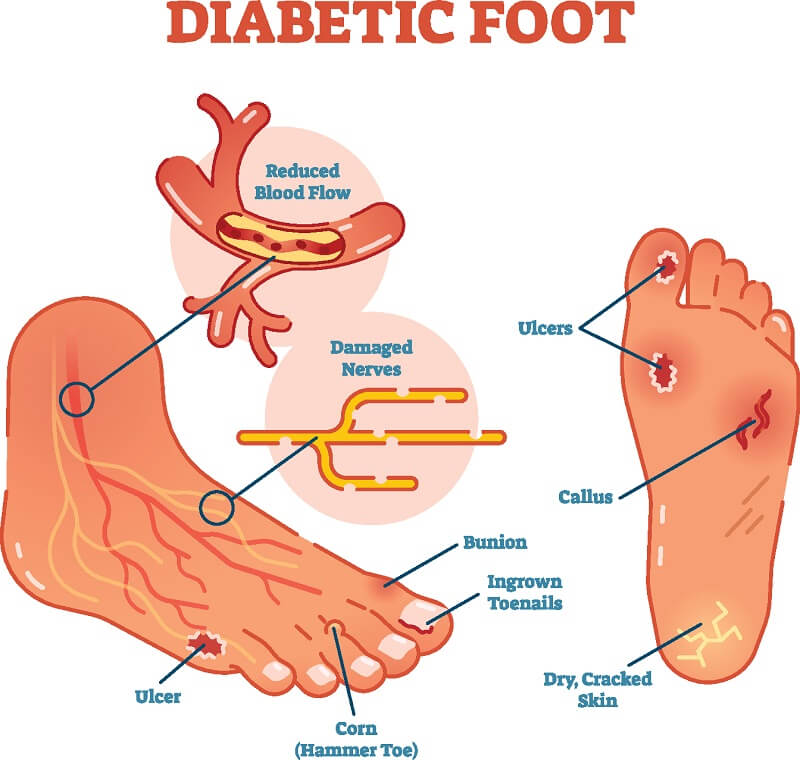

Get Help for All Your Foot ProblemsĪt Shuman Podiatry, we treat all foot problems. Autoimmune conditions like celiac disease and rheumatoid arthritis can also cause these symptoms. These include shingles, Lyme disease, HIV/AIDS, and leprosy. Some illnesses can cause your feet to tingle. If you have diabetes and you experience foot tingling, talk to a foot care professional. That may lead to the amputation of a foot or leg. In extreme cases, you can develop gangrene. This happens because you can’t feel injuries to your feet. In advanced cases of diabetic neuropathy, your feet can develop ulcers that don’t heal. This is a dangerous condition that builds up slowly after years of high or uneven blood sugar levels. If you experience cramping, painful tingling, or muscle weakness, consult a doctor.ĭiabetic neuropathy is nerve damage caused by high blood sugar. The parasthesia associated with kidney disease is more severe and long-lasting than normal pins and needles. You can prevent it by occasionally raising your legs from the floor while you’re sitting.ĭiabetes and high blood pressure can cause kidney disease. If you’re pregnant, your uterus may press on the blood vessels in your legs. What Can Cause Consistent Parasthesia?ĭo you frequently get tingling in your feet that doesn’t go away? One of these conditions could cause it. Neuropathy is often a symptom of a serious condition. This could be a symptom of peripheral neuropathy, which is nerve damage. If your tingling doesn’t go away with these simple remedies, you could have persistent paresthesia. What If Your Parasthesia Is More Serious? If you’re prone to getting pins and needles, try massaging your feet for a few minutes every day. Massaging your feet will improve blood flow and keep your toes flexible. If you’re wearing heels, remove them occasionally so you can massage and stretch your feet. Many women complain of numbness in their toes after wearing high heels. You should never have to “break-in” shoes to make them comfortable. When you buy shoes, be sure they fit comfortably right away.

Shoes that are too tight can cause intense pressure on your toes. The wrong shoes can pinch your nerves and cause paresthesia. Stretch the muscles of your feet to keep them flexible. Ease the tension by soaking your feet in warm water. If you regularly get pins and needles, you may have persistent tension in your foot muscles. If you’re not able to stand or walk, try bouncing your knee up and down while you’re sitting.

If you can, take a short walk to get the blood flowing quickly. Standing up will help get the blood to your feet. Get Movingīrisk activity will rush blood to your compressed nerves. This is usually enough to relieve the pressure and get rid of the pins and needles. Relieve the pressure instantly by changing your position to remove the pressure. This constricts your blood vessels and cuts off circulation. You get pins and needles when there’s excess pressure on one part of your leg or foot. If it persists beyond a few minutes, try these remedies. You may have to shake or wiggle your feet to get rid of the sensation. In most cases, it fades as soon as you get up and start moving your feet. It happens when staying in one position exerts pressure on your nerve endings. Doctors call it paresthesia, and it’s very common. What causes this, and should you worry about it? When You’re on Pins and Needles When you uncross your legs, you get a sharp tingling along your feet. You’ve been sitting at your desk or on the couch for a couple of hours, and you stand up.


 0 kommentar(er)
0 kommentar(er)
